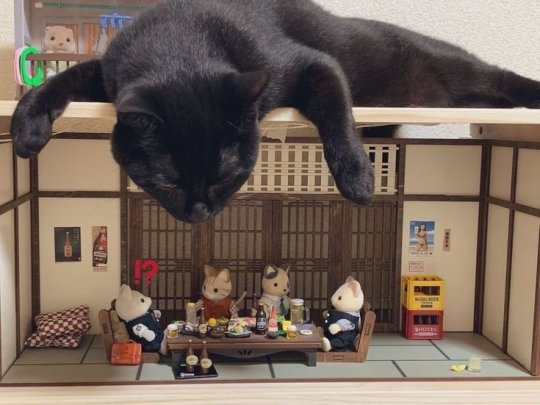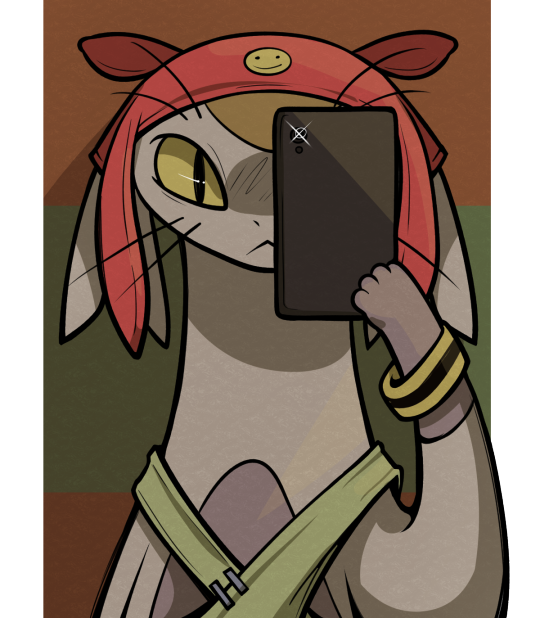Video
The Japanese commercial for ‘Sakura Wars 2’ on the SEGA Saturn.
138 notes
·
View notes
Text

♡ Panty & Stocking Anarchy (Panty & Stocking with Garterbelt) - Phat!
546 notes
·
View notes
Photo
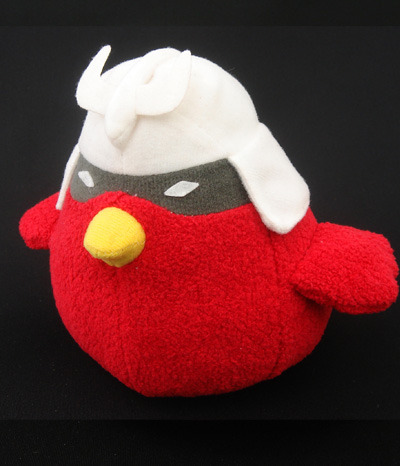
Mobilt Suit Gundam-san “Chicky Char Aznable/Comet Chicky”
728 notes
·
View notes
Text
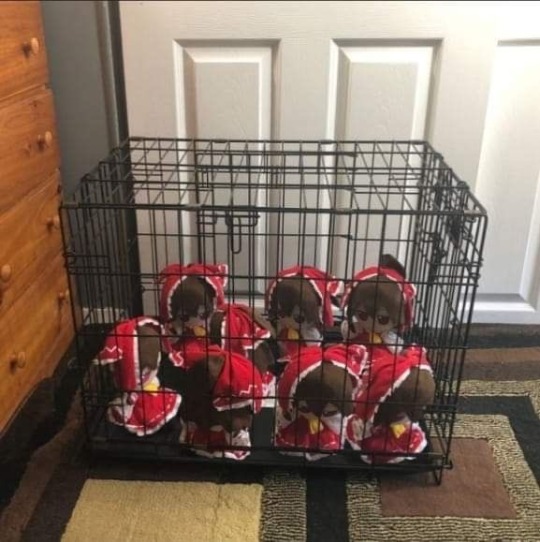
LET HER FREE NOOO PLEEEAS LET HER OUTT
5K notes
·
View notes
Text
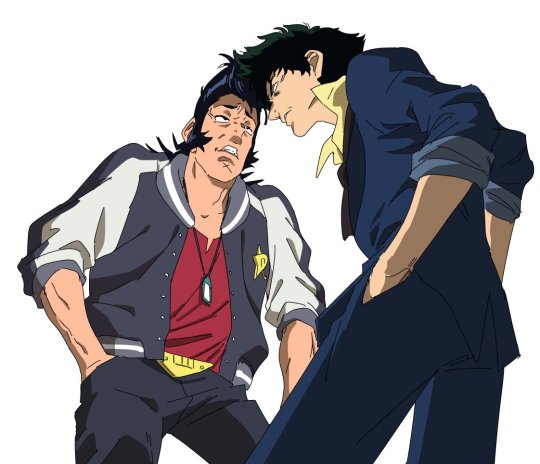
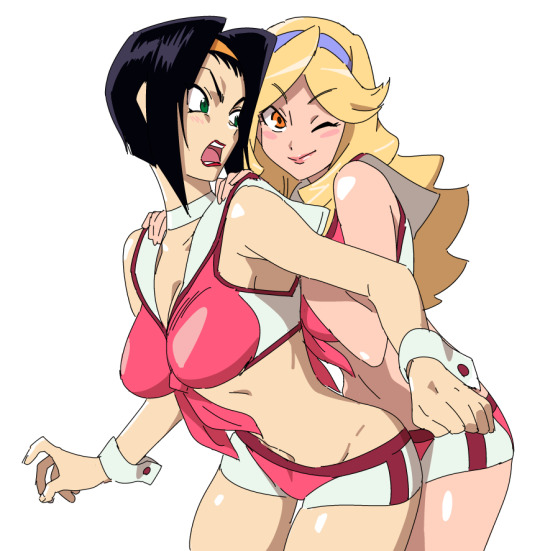

By Jinou_rakugaki
#cowboy bebop#space dandy#spike spiegel#faye valentine#dandy#honey#dr. gel#jet black#anime crossover
595 notes
·
View notes
Text
Tsukurimashou reanimated
107 notes
·
View notes
Text
So what's the alternative, then? The dissolution of the YA genre entirely? How does one even define YA? Does a book having teenage protagonists count as YA? Could a book with adult protagonists that uses certain YA tropes be classified as YA?
Good points on "kidult" media. I'd wager that it's most ardent defenders are not necessarily defensive because they think their favorite media is above criticism, but because they are hypersensitive towards the stigma around adults who enjoy children's media.
What's more, I realize that sometimes adult media can be rather depressing. Literary fiction, which, while enriching, doesn't really capture the fantastical imagination as readily as genre fiction does. And most genre fiction that is aimed at adults can be very depressing. I understand most of the best stories are in fact, depressing, but entertainment value is important too. There's good media and there's fun media, and a lot of YA novels (you could extend this to some video games and shounen manga) are both (at least in theory).
I have this personal issue with YA is that most of the time I feel like the genre is working at odds with itself. When I was around that age I felt like the idea of my exploration into adult storytelling (which began like most children around age 12) being compromised by something ostensibly aimed at me was patronising. It was telling me that 'this' was what I ought to be reading, which didn't feel right. More specifically I think the majority of the time it fails to tell the story of teenage transition into adult responsibility mostly because I think adult stories already do this well, and I think it's a disservice to young readers to imply otherwise. And even more specifically I don't think it has the established pedagogy behind it that children's storytelling does, by necessity, because the educational purpose of children's storytelling is essentially a civic responsibility.
I also think that the phenomenon of adult readers largely bolstering the YA genre is very telling about what it is good at, e.g. light entertainment, low emotional stakes, simple and straightforward tie between emotional development of the romance to the plot (often romance novels don't have genre plottiness).
I was thinking on this reading an interview with Suzanne Collins after I had recently reread The Hunger Games, where she discussed her intentions to write a war story for children/teenagers within the YA genre. And something that occurred to me reading both THG as well as the recent prequel backstory for the bad guy is that at every turn, her thematic intentions are compromised by recognisable YA tropes which just make it feel sticky and plastic. I cannot take it seriously as a book that adults can read. This is distinct from children's storytelling, because there is a discord between the adult themes and the childish portrayal.
You can tell me until you're blue in the face that the love triangle is a symbolic war for Katniss between war and peace, but that does not justify the material vehicle for this idea: a love triangle, with tropey entitlement, with clumsy execution, with delayed execution when the author is trying to tell you she's writing a serious story where Prim doesn't survive, and then Katniss/Peeta is kind of realised offhandedly afterwards. There is an inherent silliness to trying to marry this idea of a love triangle to a serious moral conflict. The serious moral conflict which girls face at that age is not something farcically realised through which boy they like. They have serious moral concerns about the world and it is actually facile to imply otherwise, and it is in no way redeemed through its metaphor. Worse, the definitive resolution of the love triangle lands with a dull thud, and I am still teased endlessly, with boring and hackneyed and gimmicky scenes between Katniss and Gale, that perhaps she might actually just choose this one (wink) - not at all reflective of the allure of violence, the call for vengeance - the painful consequences of violence, the spiritual wear of it - right through to the third book. She does not definitively reject Gale, with emphatic insistence - with fear or hatred or something thematically meaningful - and is essentially forced into that position via Prim's death. Yes, it's symbolic - yet symbolism is not self-justifying. Symbolism heightens and suggests material, not is materiality unto itself.
This is not least to get into my problems with the prequel story (A Ballad of Songbirds and Snakes), where the spiritual corruption of its protagonist is something straight out of Dostoyevsky yet is written like the twee YA story it is. It is constantly at war with itself because it is trying to write something 'for young people' with higher themes. What I think is truly condescending is the implication that for war stories to be accessible to teenagers, it must be simplified in a medium 'meant for kids'. Sure - the series is grossly popular and has had a massive reception, for the good in some ways, that makes people think about the spectacle of war (even if i do think this theme of spectacle is actually compromised by its own genre). But I do think that the aspirational intent of the THG series really is probably the perfect example of my bone to pick with the YA genre. It compromises itself. Had it not been YA, or had it not stuck to YA conventions, I think it would have been more artistically defensible. And I don't even think this is a matter of the simplicity of the prose, or even the presence of romance, or a young girl's perspective of war - none of those three, pointed to as traditional elements of YA, are the problem here. The identifiable structure of the three books (repeating three times) is probably not even the problem either. But it wants me to believe it has serious things to say, using silly vehicles for it.
I still think the fundamental existence of the YA genre is questionable. For whom is it truly aimed at? What does it mean to teach children to love reading? I think that we may potentially see here a product of that 'kidult' genre - the tension between the childlike medium and the desire for adult sensibility - mostly something I have discussed within fandom and children's shows which attract adult audiences (SU, Voltron, and so on). The ready defensiveness criticism of the genre incurs suggests that they want the ease of being an established publishing genre read by millions worldwide but they want the escape from criticism that other genres do not enjoy. More importantly at the heart of this is what it means to write fiction for children and teenagers in the transition to adulthood, and I think that the class of YA defenders online are actually morally and pedagogically irresponsible. Either you are or aren't a criticisable genre, and either you are or aren't 'YA' - Young Adult, traditionally aimed at teenagers - and either you are or aren't making money.
I used THG as a case study, and jumping off for this thought, because it is a sensation cross-readership - and continues to attract new readers, and readers return to it for nostalgia. The Katniss/Peeta dynamic remains a relative strength to the series, although I'd argue it is fatally compromised by the love triangle, and I think it has some interesting ideas about the theatre of war - particularly through a feminine lense. But equally the reality of war is entirely absent from it, reduced to spectacle to manifest its thematic statement about propaganda but also for the focus of violence to be on the arena (and its Minotaur allusion), and the relatively isolated perspective of the protagonist within a YA novel. Such is the source of my criticism. But to take it even further, I think that, because YA does not bear enough responsibility to its teenage readers, it is generally patronising with its depiction of these adult themes of the world they are entering. Then you enter the discourse which is 'are adult books appropriate for developing readers to read?' and in which case I would've thrown my Stephen King at you for daring to ask such a question.
These are just my feelings. I fear that a Tumblrina does not hold much sway over potentially the most profitable and booming book genre now around. They may develop further also - I think THG is the most redeemable of any YA, but for that very reason illuminates these problems the best.
5 notes
·
View notes
Photo
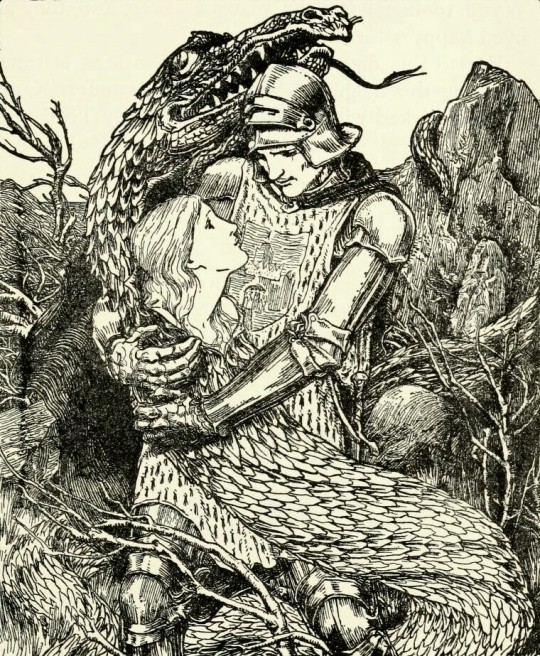
The Laidly Worm of Spindleston Heugh, from English Fairy Tales by John D. Batten (1890)
3K notes
·
View notes
Note
I absolutely love your blog! You have great taste. Thank you very much for following me. All your likes and reblogs made my night!
( ╹▽╹ )
Thank you so much! You have great taste as well.
1 note
·
View note
Text
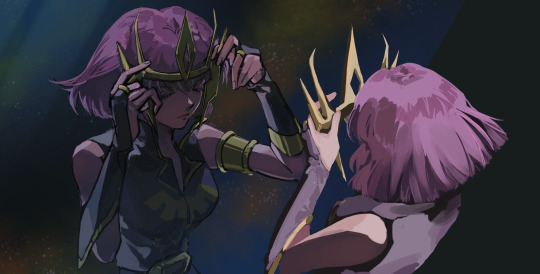
395 notes
·
View notes
